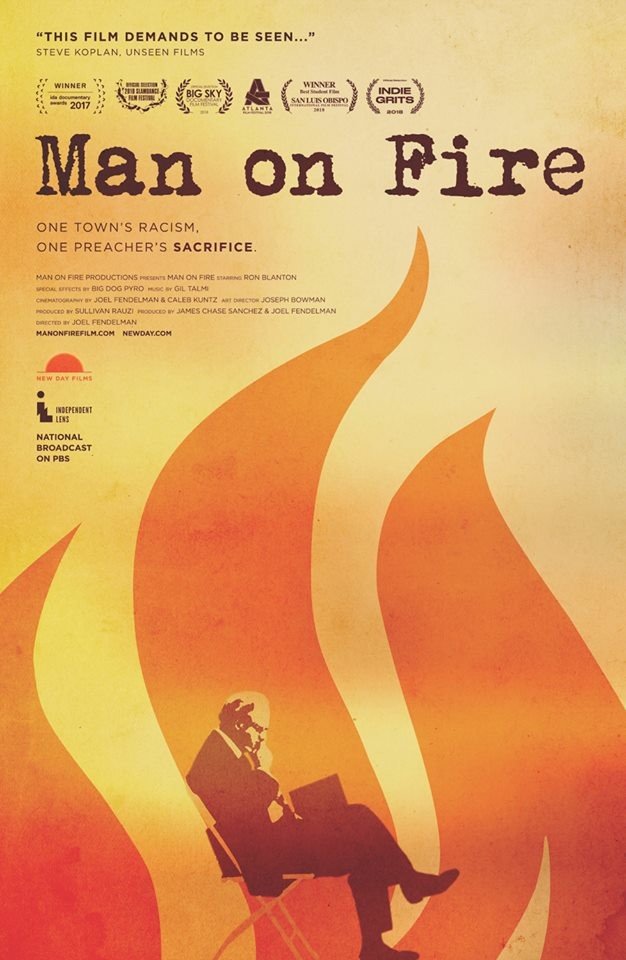Retired Methodist minister Charles Moore shocked his boyhood home of Grand Saline late the afternoon of June 23, 2014, when he set himself ablaze in a parking lot known as the Bear Grounds.
He died later that day in Dallas, but he’d left behind a letter explaining that self-immolation was his way to inspire action against social injustice. Moore, who was 79 when he took his own life, lamented that America in general and Grand Saline in particular had failed to repent for the sins of slavery and its aftermath and still bore the legacy of racial discrimination.
Through social media, James Sanchez heard about the tragic event about five minutes after it had happened, he said. At the time, he’d been researching a college dissertation on race relations. Ultimately, Moore’s act of self-immolation would serve as the basis for that dissertation and later a documentary film examining race relations in Grand Saline.
The documentary “Man on Fire” will be broadcast at 9 p.m. on Dec. 17 on PBS as part of the network’s Independent Lens series. The film already has been shown at UT-Tyler and it premiered at the Slamdance Film Festival in Park City, Utah. It has received the International Documentary Association Award.
Sanchez, co-producer of the documentary, has an insiders’ perspective. His grandfather founded Lake Fork Baptist Church. He grew up in Alba, attending kindergarten through sixth grade there. Sanchez then moved to Grand Saline, where he attended seventh-grade through high school. Today, Sanchez holds a doctorate and is an assistant professor of writing and rhetoric at Middlebury College in Vermont.
Filming for “Man on Fire” began in 2016, about a year after he’d crossed paths with a professional film director in Austin. The film focuses on the final day of Moore’s life and is not meant to be a biography.
“I wanted his story to be a vehicle to better understand the issues of race and racism in Grand Saline,” Sanchez said. “Most of the story is about the history of Grand Saline and how people consider race and racism. Do they think it’s racism or not?”
The film takes a “neutral approach and lets the people of Grand Saline speak for themselves,” he noted.
Through the course of filming, about 50 people were interviewed, including some from Mineola’s black community, Sanchez said. Ultimately, the documentary features interviews from roughly 20 people.
“I would say the hardest part was getting people in front of the camera,” he said, especially people from Grand Saline.
Some of the older folks in town remembered him from his football days playing for the Indians, and they were a bit more receptive, he recalled. Others who knew him could be a bit leery.
“I had pretty liberal views when it comes to race,” he said. However, doing a “hit job” on the town was never his intent.
He believes people in Grand Saline will be “pleasantly surprised when they watch the film.”
Regarding the question of Charles Moore’s sanity, Sanchez said, “I feel very confident saying he was not mentally ill.” Moore thought his actions would prompt “this big conversation” about race in Grand Saline, Sanchez stated. Ultimately, however, “He didn’t get the response he wanted.”









